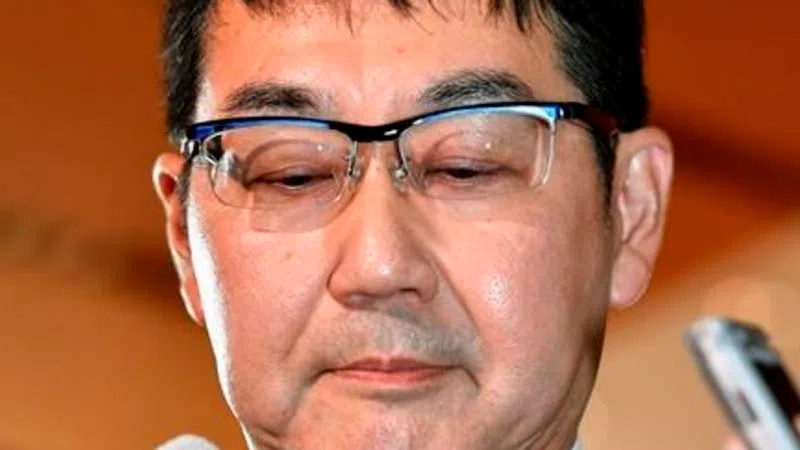
Japan justice minister resigns in election payments scandal
TOKYO — Japan’s justice minister resigned Thursday over election payment allegations involving his wife, also a lawmaker, and about his own reported gift-giving, becoming the second Cabinet minister to step down in a week.
Katsuyuki Kawai’s resignation and that of the trade minister last Friday are an embarrassment to Prime Minister Shinzo Abe’s government, which has been plagued by a series of gaffes that have prompted public anger. In his nearly seven years in office, Abe has managed to shake off various scandals, and support ratings for his Cabinet have been generally stable, in part because of a weak opposition and voter indifference.
Abe told reporters he accepted the resignation submitted by Kawai, who said he did not want to cause trouble for the government’s justice policies because of the scandal.
Abe appointed Masako Mori, a lawyer-turned-lawmaker who previously served as minister in charge of addressing Japan’s declining birth rate, as new justice minister.
